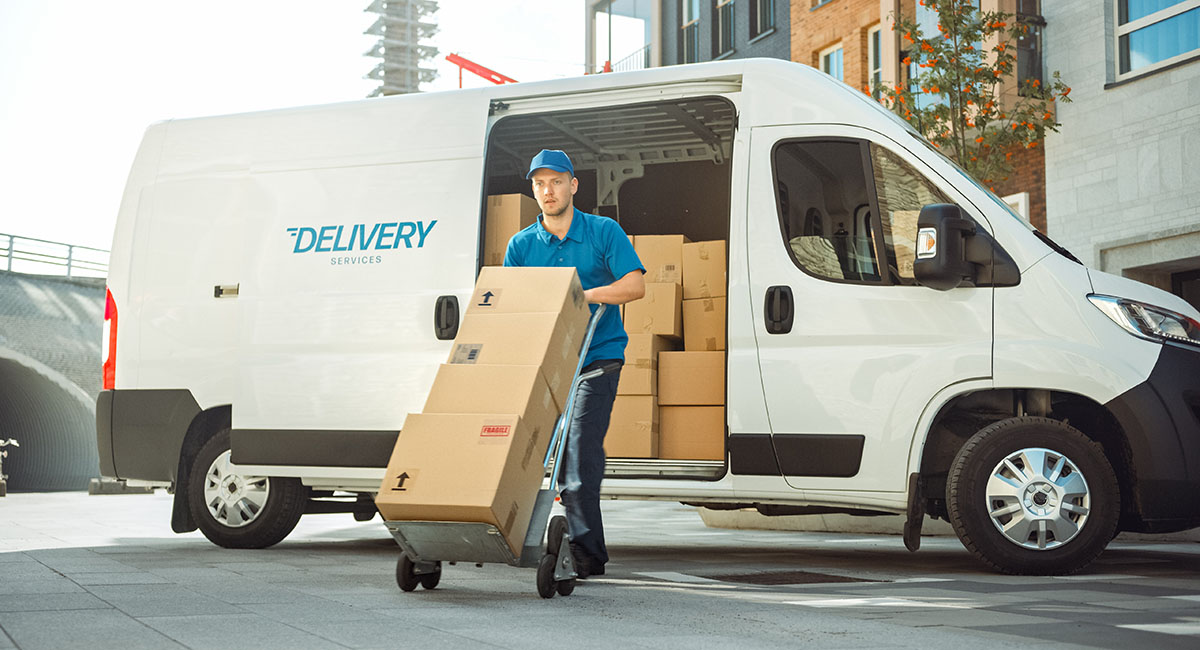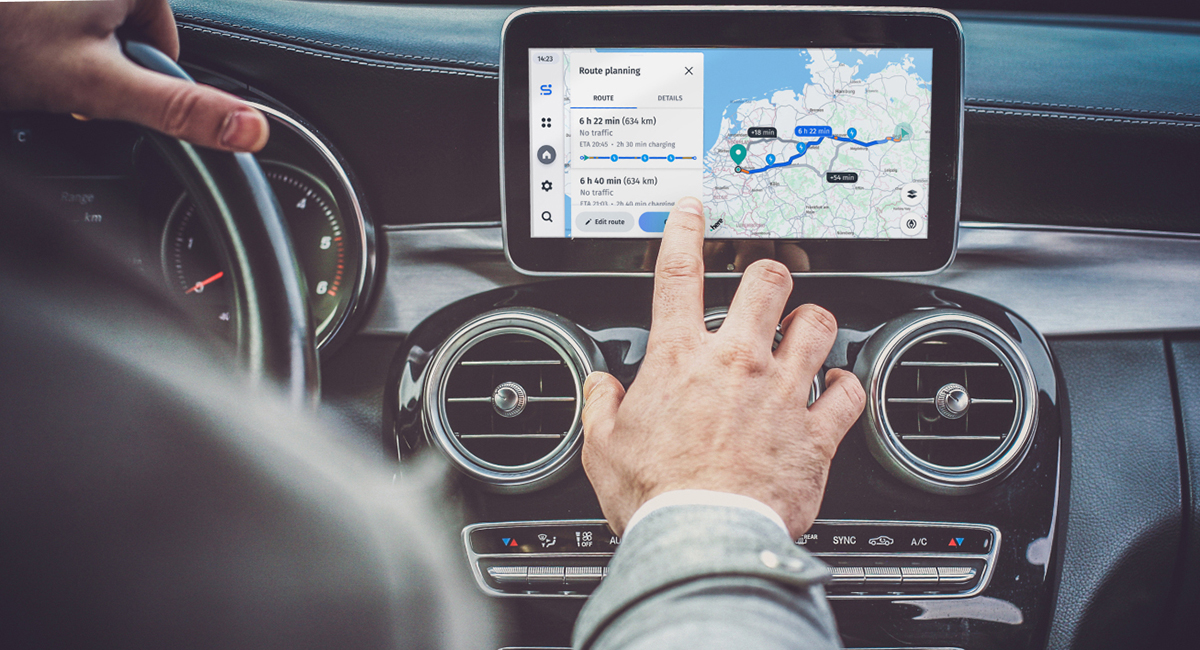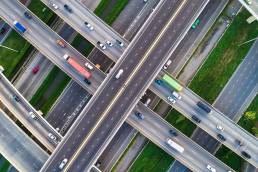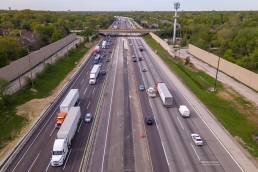Improving mobility for a more environmentally friendly, intelligent, and secure tomorrow.
Sustainability is a huge priority within many industries. For logistics, the high level of greenhouse gas emissions generated by the sector means this priority simply cannot be ignored. In fact, it is an increasing concern. PwC reports that, even though vehicles have generally become more energy efficient over time, carbon emissions from road freight transport have increased by more than 20% since 1995.
But there is a way for logistics to support the journey to a more sustainable future – not hold it back. The emergence of new digital tools that improve the energy efficiency of the logistics sector combined with a general movement towards net zero transport is pushing the industry towards a more sustainable future. Below, we explain how your organization can get on board.
What is net zero transport?
The need to embrace sustainability is increasingly paramount given our ongoing failures to address climate change. Unfortunately, a United Nations report recently revealed that we are not on track to achieve the long-term goals of the Paris Agreement, which would cap global temperature increases to 1.5 degrees Celsius.
No single industry is to blame for climate change, of course, but logistics could certainly do more to improve its environmental footprint. That’s why net zero transport is gaining traction. Net zero transport means not only eliminating emissions from the transport sector where possible but also offsetting them where it isn’t. Given that the transportation sector accounted for about 20% of global greenhouse gas emissions in 2020, the challenges around reaching net zero transport are significant. But so too are the opportunities.
Transport is a broad sector and encompasses private vehicles, public transport, logistics, and more. Regarding logistics, specifically, more sustainable fleets offer the potential for this sector to support net zero transport – but only if organizations are willing to adopt a number of sustainability initiatives.
How can logistics clean up its act?
There are various ways that logistics can play its part in the transition to net zero transport. It will, of course, require businesses to utilize more sustainable fleets – and the following approaches will help:
- Improve space utilization: Efficiency can be greatly enhanced at your logistics company by the better utilization of space inside your vehicles. Streamlining your packaging can mean you can fit more deliveries in each vehicle, meaning fewer journeys – and lower overall emissions.
- Reduce and recycle: There’s no getting around it – logistics can create a lot of waste. Each delivery contributes to this and the misuse of resources and inventory mismanagement can make matters worse. Where possible, re-use packaging or adopt recyclable materials to greatly reduce the amount of waste you produce.
- Focus on the last mile: The logistics industry is broad but one of the most environmentally damaging parts of it concerns the last mile. It is estimated that urban delivery traffic will result in an increase in carbon emissions of more than 30% by 2030. Unsurprisingly, a “green last mile” is something more and more customers are calling for.
Another important consideration for any logistics provider looking to support a greener future is the environmental footprint of all stakeholders within the entire supply chain. Think carefully about the other companies you work with and their sustainability credentials. Net zero transport can only really be achieved when all the moving parts that make up the logistics supply chain have reduced their emissions.
Technology to the rescue
However, perhaps the most transformative decision that the logistics sector could take to encourage greater sustainability would be the adoption of more digital tools, including routing optimization software and other types of location technology.
By using route optimization software, logistics companies and fleet management personnel can become more environmentally friendly and sustainable by reducing the number of kilometers driven and, therefore, both transport costs and carbon emissions.
Location technology enhances the visibility and transparency around each delivery. Real-time data can enable businesses to earmark exactly where emissions are being generated – and what can be done to reduce them. This data is also dynamic, meaning fleet managers can adjust routes while in progress, allowing them to maximize efficiency and lower emissions.
The data provided by location technology can also influence driver behavior, helping them play a part in the creation of a more sustainable fleet. The right tool can provide information on speed, idle times, and other driver metrics. These can have a major influence on fuel waste and emission levels. Improvements here can help make net zero transport a reality.
What’s more, sustainability isn’t simply good for the planet – it’s good for profits too. By enabling route optimization, location technology can improve customer service levels by providing more accurate ETAs.
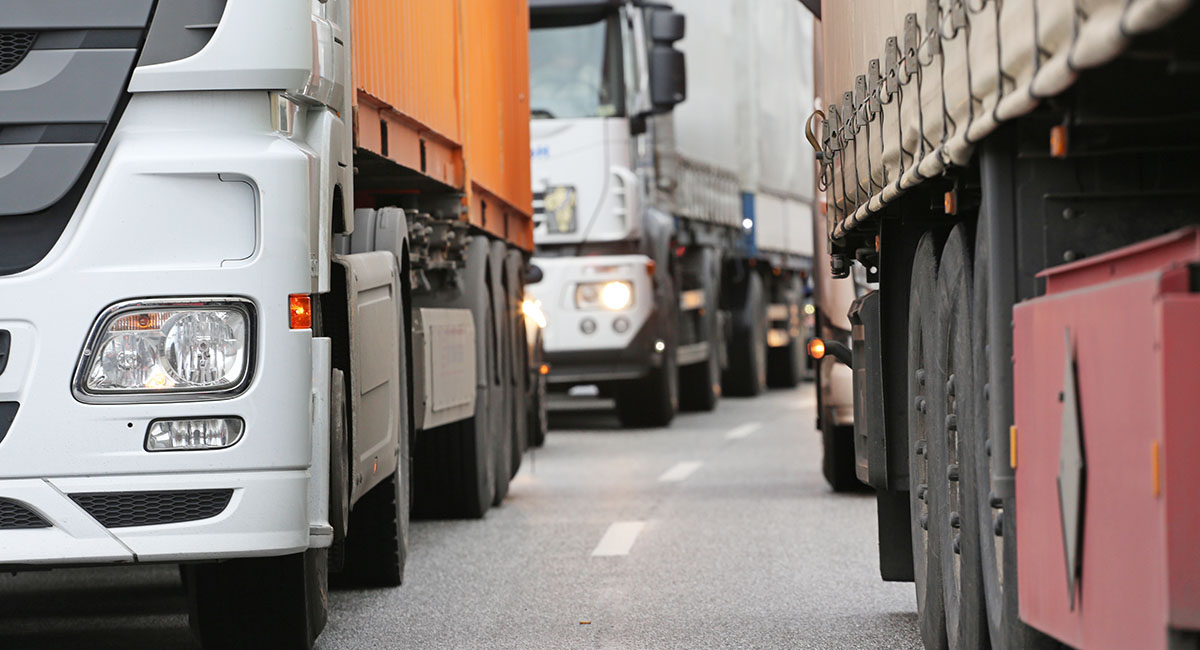
Crucially, these tools provide indisputable proof of a company’s sustainability credentials. The hard data collected makes greenwashing much more difficult – and this is something that employees and customers will appreciate. 71% of potential employees want to work for environmentally friendly companies and more than 60% of consumers are quite or very interested in environmentally friendly delivery methods. In terms of both recruitment and sales, sustainable logistics is clearly the way forward.
Location technology is essential for reducing fleet emissions and energy costs. But, here there are a number of options available for logistics firms to choose from. It is important that they work with a vendor that not only promises cutting-edge solutions, real-time data, and easy-to-integrate technology – but also world-class support.
At Local Eyes, we look to add value through our first-rate team – always on hand to show our clients just how technology can make deliveries faster, cheaper, and more sustainable.
Reaching net zero transport won’t be easy but with delivery demand growing all the time, the logistics sector doesn’t have a moment to spare in playing its part in achieving such an ambitious goal. And location technology can help it to get there.
Local Eyes B.V. is a leading reseller and integrator of geospatial technologies and data that has been contributing to its client’s success for the past 10 years by optimizing their decision-making and logistic processes. Find out how working with Local Eyes can help cut the environmental impact of transportation and logistics. Get in touch with us today.

